2025年牛津译林版英语中考专题复习课件:课题十二 句子种类 课件 (共24张PPT)
文档属性
| 名称 | 2025年牛津译林版英语中考专题复习课件:课题十二 句子种类 课件 (共24张PPT) |

|
|
| 格式 | pptx | ||
| 文件大小 | 1.4MB | ||
| 资源类型 | 教案 | ||
| 版本资源 | 牛津译林版 | ||
| 科目 | 英语 | ||
| 更新时间 | 2025-03-12 18:33:43 | ||
图片预览


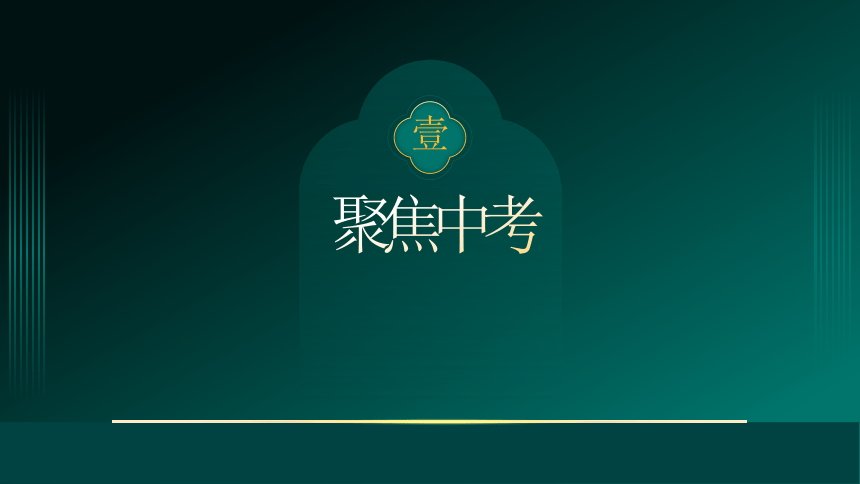
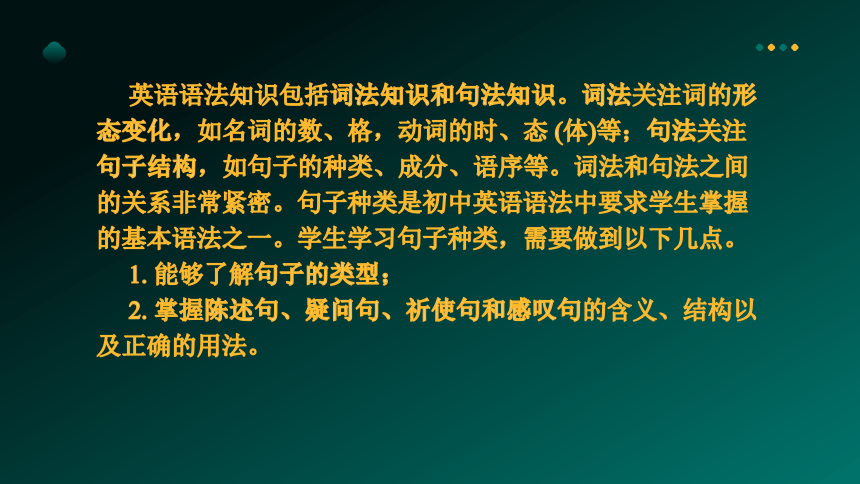
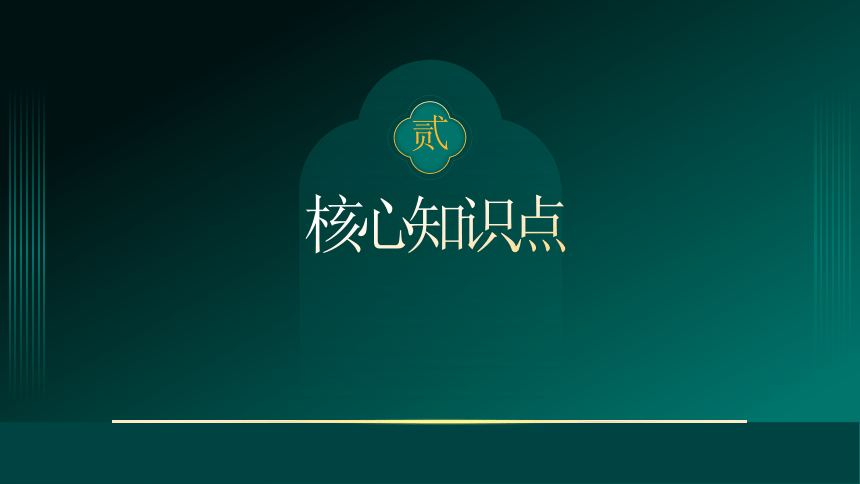
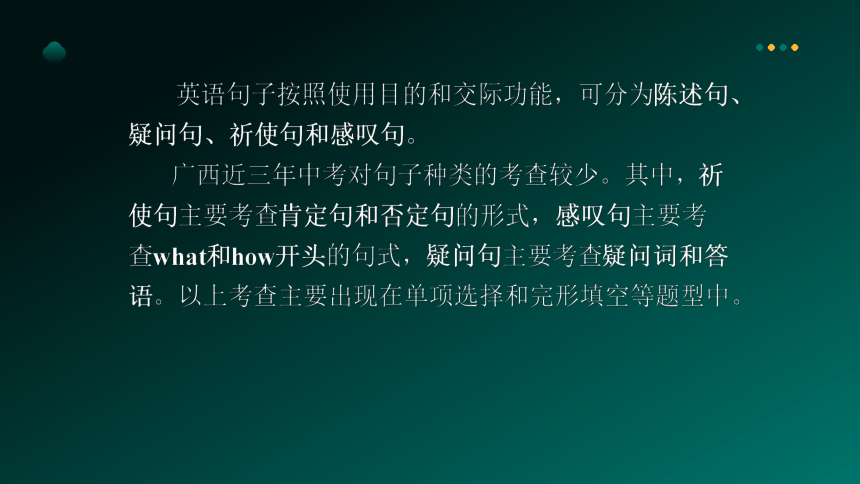
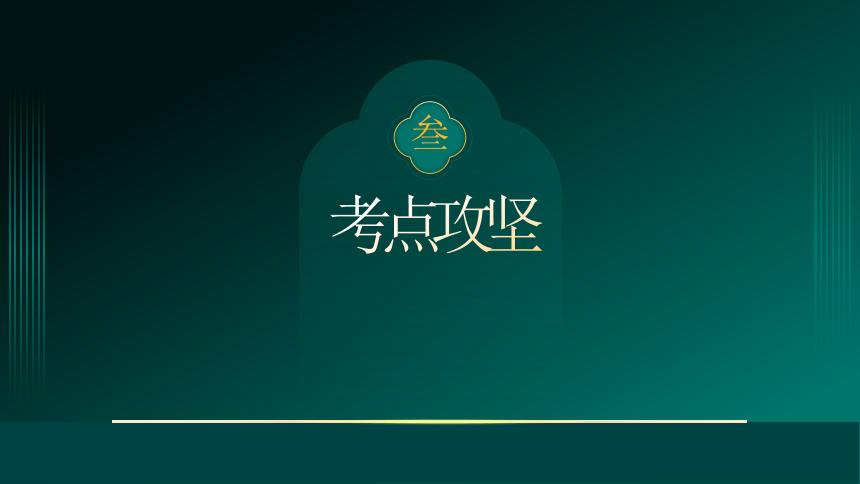
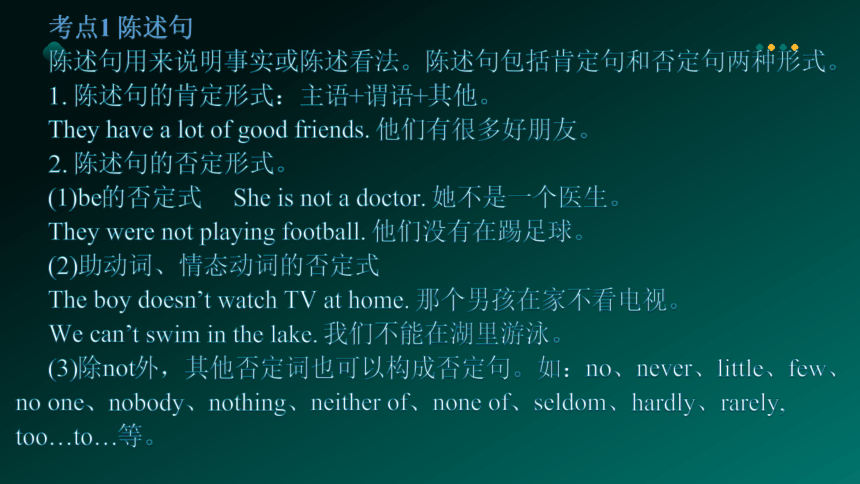
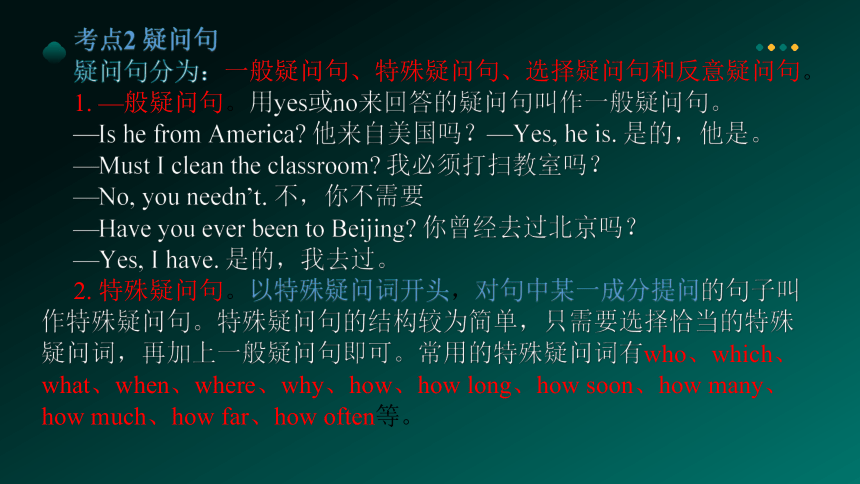
文档简介
(共24张PPT)
2025年英语中考复习
课题十二 句子种类
句 法
聚焦中考
壹
英语语法知识包括词法知识和句法知识。词法关注词的形态变化,如名词的数、格,动词的时、态 (体)等;句法关注句子结构,如句子的种类、成分、语序等。词法和句法之间的关系非常紧密。句子种类是初中英语语法中要求学生掌握的基本语法之一。学生学习句子种类,需要做到以下几点。
1. 能够了解句子的类型;
2. 掌握陈述句、疑问句、祈使句和感叹句的含义、结构以及正确的用法。
核心知识点
贰
英语句子按照使用目的和交际功能,可分为陈述句、疑问句、祈使句和感叹句。
广西近三年中考对句子种类的考查较少。其中,祈使句主要考查肯定句和否定句的形式,感叹句主要考查what和how开头的句式,疑问句主要考查疑问词和答语。以上考查主要出现在单项选择和完形填空等题型中。
考点攻坚
叁
考点1 陈述句
陈述句用来说明事实或陈述看法。陈述句包括肯定句和否定句两种形式。
1. 陈述句的肯定形式:主语+谓语+其他。
They have a lot of good friends. 他们有很多好朋友。
2. 陈述句的否定形式。
(1)be的否定式 She is not a doctor. 她不是一个医生。
They were not playing football. 他们没有在踢足球。
(2)助动词、情态动词的否定式
The boy doesn’t watch TV at home. 那个男孩在家不看电视。
We can’t swim in the lake. 我们不能在湖里游泳。
(3)除not外,其他否定词也可以构成否定句。如:no、never、little、few、no one、nobody、nothing、neither of、none of、seldom、hardly、rarely, too…to…等。
考点2 疑问句
疑问句分为:一般疑问句、特殊疑问句、选择疑问句和反意疑问句。
1. —般疑问句。用yes或no来回答的疑问句叫作一般疑问句。
—Is he from America 他来自美国吗?—Yes, he is. 是的,他是。
—Must I clean the classroom 我必须打扫教室吗?
—No, you needn’t. 不,你不需要
—Have you ever been to Beijing 你曾经去过北京吗?
—Yes, I have. 是的,我去过。
2. 特殊疑问句。以特殊疑问词开头,对句中某一成分提问的句子叫作特殊疑问句。特殊疑问句的结构较为简单,只需要选择恰当的特殊疑问词,再加上一般疑问句即可。常用的特殊疑问词有who、which、what、when、where、why、how、how long、how soon、how many、how much、how far、how often等。
3. 选择疑问句。选择疑问句是提供两种或两种以上的情况供对方选择的疑问句。选择疑问句不用yes或no回答,只要根据实际情况回答即可。选择疑问句可以分为一般选择疑问句和特殊选择疑问句两种情况。
(1)一般选择疑问句:一般疑问句+or+被选择部分?
—Do you like football or basketball 你喜欢足球还是篮球?
—I prefer basketball. 我更喜欢篮球。
(2)特殊选择疑问句:特殊疑问句,A or B
—Which season do you like better, spring or autumn
你更喜欢哪个季节,春季还是秋季?
—I like spring better. 我更喜欢春季。
4. 反意疑问句:反意疑问句由“陈述句+简略疑问句”组成,前一部分提出看法,后一部分提出质疑。句式为“肯定陈述句+否定疑问?”或“否定陈述句+肯定疑问?”
He likes sports, doesn’t he 他喜欢做运动,不是吗?
He hasn’t been to Beijing, has he 他没去过北京,是吗?
若陈述部分含有hardly、seldom、never、few、little、nothing、nobody等否定词,其疑问部分要用肯定式。
●通关必练
( )1. — books do you read every year —About fifty. I love reading.
A. How many B. How much C. How often
( )2. — are the red hat and the blue pants — 60 yuan.
A. How much B. How many C. How
( )3. — you any plans for the coming summer vacation
—Yes, I do. I plan to visit the Palace Museum in Beijing.
A. Do; have B. Does; have C. Did; have
( )4. — _____ was the car invented —It was invented in 1885.
A. When B. Where C. Who
( )5. He can hardly stay awake because he is so tired, ____
A. can he B. can’t he C. does he
A
A
A
A
A
考点3 祈使句
祈使句用来表达请求、命令、劝告、建议等。祈使句分为肯定形式和否定形式。
1. 祈使句的不同句型结构。
句型结构 示例
肯定结构 实义动词+其他 Open the door, please. 请打开门。
连系动词+其他 Be quiet, please. 请保持安静。
Let+sb+动词原形 Let me help you. 让我帮助你吧。
否定结构 在句首加don’t构成 Don’t smoke here. 不要在这里吸烟。
Don’t be late. 别迟到了。
Let的否定形式有两种: Let+sb+not+动词原形 Don’t+let+sb+动词原形 Let’s not waste the time.
咱们不要浪费时间。
Don’t let him know that. 别让他知道。
其他形式 用no开头,用来表示禁止的祈使句 No entry. 禁止进入。
No fishing. 禁止钓鱼。
2. 祈使句+and/or+陈述句。
Work hard, and you will make progress.
(=If you work hard, you will make progress.)
Hurry up, or you will be late.
(=If you don’t hurry up, you will be late.)
●通关必练
( )1. —Hurry up, Jim, we will miss the beginning of the concert.
—OK, Daddy. I’m coming.
A. so B. but C. or
( )2. to protect yourselves and it’s everyone’s duty to fight against school bullying (校园霸凌) .
A. To learn B. Learn C. Learning
( )3. Growing up is not easy, Tom. calm when you’re facing serious problems in life.
A. Staying B. To stay C. Stay
( )4. _______ walk on the grass.
A. Doesn’t B. Don’t C. Not
( )5. — ______ the dishes after dinner, Tony. —No problem, Mom.
A. Washing B. Wash C. To wash
C
B
C
B
B
考点4 感叹句
感叹句用来表示人们惊讶、喜悦和悲伤等强烈的情感。句末用感叹号,多用what和how引导,what修饰名词,how修饰形容词、副词和动词。
句型结构 示例
What 引导 What+a/an+形容词+可数名词单数形式+主语+谓语! What an interesting book it is!
这是一本多么有趣的书啊!
What+形容词+可数名词复数形式+主语+谓语! What beautiful flowers they are!
这些花多么美丽呀!
What+形容词+不可数名词主语+谓语! What good news it is!
这是多么好的消息呀!
How 引导 How+形容词/副词+主语+谓语! How interesting the book is!
这本书多么有趣啊!
How fast he runs! 他跑得真快呀!
How+主语+谓语! How time flies! 时间过得真快啊!
●通关必练
( )1. useful advice he offered on improving our social communicating ability, especially for us teenagers!
A. What B. What a C. How
( )2. —Have you watched the boat races this Dragon Boat Festival
—Yes. ______ wonderful races!
A. What a B. What C. How
( )3. —Doctors have successfully stopped the virus from spreading in this area. — proud we feel!
A. How B. How a C. What
( )4. —Our school volleyball team won the first prize last Friday.
—Wow, great news! A. what an B. how C. what
( )5. —Look! The children are playing in the swimming pool.
—_______ great fun they are having!
A. What B. How C. What a
A
B
A
C
A
靶向突破
肆
●提分必练
单项选择。
( )1. —There is nothing left in the fridge, ______
—Yes. Let’s go to the supermarket to buy some.
A. isn’t there B. is there C. is it
( )2. —Look at my new dress.
—Wow! ________ beautiful it is!
A. How B. What C. What a
( )3. _____ noise pollution, and we can live in a quiet environment.
A. Prevent B. To prevent C. Prevented
( )4. —He didn’t go to school, did he
—______, though he had a headache.
A. Yes, he did B. No, he didn’t C. Yes, he went
B
A
A
A
( )5. — hard, and your dream will come true. —Well, I’ll try my best.
A. Work B. To work C. Working
( )6. —The summer vacation is coming. Why don’t you go to the beach to enjoy the sunshine
—Sounds great. ______ good advice!
A. What B. What a C. How
( )7. —Daddy, why is swimming so hard —Dear, when you feel like giving up, and think about why you started.
A. stop B. stops C. stopping
( )8. —People choose high-speed train or self-driving to travel on holidays.
—_______ fast the traditional travel ways change!
A. What a B. What C. How
A
A
A
C
●真金火炼
( )1. (2024·桂林) — Henry, is your job —I’m a policeman.
A. how B. where C. what
( )2. (2023·南宁) — is it from your school to the Nature Museum
—About 3 kilometers.
A. How far B. How old C. How much
( )3. (2022·武汉) —Cindy, do you know Wan Buyan
— . He received the title “Role Model of the Times” in May, 2023.
A. Yes, there is B. Yes, he will C. Yes, Ido
( )4. (2023·郴州) —Can you speak English, Lingling —Yes, I .
A. must B. can C. should
C
A
C
B
单项选择。
(B)5. (2023·扬州) —Will she comeback soon —Yes, .
A. she is B. she will C. she does
( B )6. (2022·苏州) —China is becoming stronger and stronger. More and more foreign people are learning Chinese.
— proud we are! We don’t regret being Chinese.
A. What a B. How C. What D. How a
(B)7. (2024·太原) — is it from your home to school
—About ten kilometers.
A. What B. How far C. Where
(C)8. (2023·济南) — on this book, Lucy! —Sorry, I won’t.
A. Drawing B. Draw C. Don’t draw
(C )9. (2023·东莞) trying and encouraging yourself if you want to succeed in something.
A. To keep B. Keeping C. Keep
(C)10. (2023·南昌) — Hurry up, Jim, we will miss the beginning of the concert. —OK, Daddy. I’m coming.
A. so B. but C. or
知 识 梳 理
巩 固 训
2025年英语中考复习
课题十二 句子种类
句 法
聚焦中考
壹
英语语法知识包括词法知识和句法知识。词法关注词的形态变化,如名词的数、格,动词的时、态 (体)等;句法关注句子结构,如句子的种类、成分、语序等。词法和句法之间的关系非常紧密。句子种类是初中英语语法中要求学生掌握的基本语法之一。学生学习句子种类,需要做到以下几点。
1. 能够了解句子的类型;
2. 掌握陈述句、疑问句、祈使句和感叹句的含义、结构以及正确的用法。
核心知识点
贰
英语句子按照使用目的和交际功能,可分为陈述句、疑问句、祈使句和感叹句。
广西近三年中考对句子种类的考查较少。其中,祈使句主要考查肯定句和否定句的形式,感叹句主要考查what和how开头的句式,疑问句主要考查疑问词和答语。以上考查主要出现在单项选择和完形填空等题型中。
考点攻坚
叁
考点1 陈述句
陈述句用来说明事实或陈述看法。陈述句包括肯定句和否定句两种形式。
1. 陈述句的肯定形式:主语+谓语+其他。
They have a lot of good friends. 他们有很多好朋友。
2. 陈述句的否定形式。
(1)be的否定式 She is not a doctor. 她不是一个医生。
They were not playing football. 他们没有在踢足球。
(2)助动词、情态动词的否定式
The boy doesn’t watch TV at home. 那个男孩在家不看电视。
We can’t swim in the lake. 我们不能在湖里游泳。
(3)除not外,其他否定词也可以构成否定句。如:no、never、little、few、no one、nobody、nothing、neither of、none of、seldom、hardly、rarely, too…to…等。
考点2 疑问句
疑问句分为:一般疑问句、特殊疑问句、选择疑问句和反意疑问句。
1. —般疑问句。用yes或no来回答的疑问句叫作一般疑问句。
—Is he from America 他来自美国吗?—Yes, he is. 是的,他是。
—Must I clean the classroom 我必须打扫教室吗?
—No, you needn’t. 不,你不需要
—Have you ever been to Beijing 你曾经去过北京吗?
—Yes, I have. 是的,我去过。
2. 特殊疑问句。以特殊疑问词开头,对句中某一成分提问的句子叫作特殊疑问句。特殊疑问句的结构较为简单,只需要选择恰当的特殊疑问词,再加上一般疑问句即可。常用的特殊疑问词有who、which、what、when、where、why、how、how long、how soon、how many、how much、how far、how often等。
3. 选择疑问句。选择疑问句是提供两种或两种以上的情况供对方选择的疑问句。选择疑问句不用yes或no回答,只要根据实际情况回答即可。选择疑问句可以分为一般选择疑问句和特殊选择疑问句两种情况。
(1)一般选择疑问句:一般疑问句+or+被选择部分?
—Do you like football or basketball 你喜欢足球还是篮球?
—I prefer basketball. 我更喜欢篮球。
(2)特殊选择疑问句:特殊疑问句,A or B
—Which season do you like better, spring or autumn
你更喜欢哪个季节,春季还是秋季?
—I like spring better. 我更喜欢春季。
4. 反意疑问句:反意疑问句由“陈述句+简略疑问句”组成,前一部分提出看法,后一部分提出质疑。句式为“肯定陈述句+否定疑问?”或“否定陈述句+肯定疑问?”
He likes sports, doesn’t he 他喜欢做运动,不是吗?
He hasn’t been to Beijing, has he 他没去过北京,是吗?
若陈述部分含有hardly、seldom、never、few、little、nothing、nobody等否定词,其疑问部分要用肯定式。
●通关必练
( )1. — books do you read every year —About fifty. I love reading.
A. How many B. How much C. How often
( )2. — are the red hat and the blue pants — 60 yuan.
A. How much B. How many C. How
( )3. — you any plans for the coming summer vacation
—Yes, I do. I plan to visit the Palace Museum in Beijing.
A. Do; have B. Does; have C. Did; have
( )4. — _____ was the car invented —It was invented in 1885.
A. When B. Where C. Who
( )5. He can hardly stay awake because he is so tired, ____
A. can he B. can’t he C. does he
A
A
A
A
A
考点3 祈使句
祈使句用来表达请求、命令、劝告、建议等。祈使句分为肯定形式和否定形式。
1. 祈使句的不同句型结构。
句型结构 示例
肯定结构 实义动词+其他 Open the door, please. 请打开门。
连系动词+其他 Be quiet, please. 请保持安静。
Let+sb+动词原形 Let me help you. 让我帮助你吧。
否定结构 在句首加don’t构成 Don’t smoke here. 不要在这里吸烟。
Don’t be late. 别迟到了。
Let的否定形式有两种: Let+sb+not+动词原形 Don’t+let+sb+动词原形 Let’s not waste the time.
咱们不要浪费时间。
Don’t let him know that. 别让他知道。
其他形式 用no开头,用来表示禁止的祈使句 No entry. 禁止进入。
No fishing. 禁止钓鱼。
2. 祈使句+and/or+陈述句。
Work hard, and you will make progress.
(=If you work hard, you will make progress.)
Hurry up, or you will be late.
(=If you don’t hurry up, you will be late.)
●通关必练
( )1. —Hurry up, Jim, we will miss the beginning of the concert.
—OK, Daddy. I’m coming.
A. so B. but C. or
( )2. to protect yourselves and it’s everyone’s duty to fight against school bullying (校园霸凌) .
A. To learn B. Learn C. Learning
( )3. Growing up is not easy, Tom. calm when you’re facing serious problems in life.
A. Staying B. To stay C. Stay
( )4. _______ walk on the grass.
A. Doesn’t B. Don’t C. Not
( )5. — ______ the dishes after dinner, Tony. —No problem, Mom.
A. Washing B. Wash C. To wash
C
B
C
B
B
考点4 感叹句
感叹句用来表示人们惊讶、喜悦和悲伤等强烈的情感。句末用感叹号,多用what和how引导,what修饰名词,how修饰形容词、副词和动词。
句型结构 示例
What 引导 What+a/an+形容词+可数名词单数形式+主语+谓语! What an interesting book it is!
这是一本多么有趣的书啊!
What+形容词+可数名词复数形式+主语+谓语! What beautiful flowers they are!
这些花多么美丽呀!
What+形容词+不可数名词主语+谓语! What good news it is!
这是多么好的消息呀!
How 引导 How+形容词/副词+主语+谓语! How interesting the book is!
这本书多么有趣啊!
How fast he runs! 他跑得真快呀!
How+主语+谓语! How time flies! 时间过得真快啊!
●通关必练
( )1. useful advice he offered on improving our social communicating ability, especially for us teenagers!
A. What B. What a C. How
( )2. —Have you watched the boat races this Dragon Boat Festival
—Yes. ______ wonderful races!
A. What a B. What C. How
( )3. —Doctors have successfully stopped the virus from spreading in this area. — proud we feel!
A. How B. How a C. What
( )4. —Our school volleyball team won the first prize last Friday.
—Wow, great news! A. what an B. how C. what
( )5. —Look! The children are playing in the swimming pool.
—_______ great fun they are having!
A. What B. How C. What a
A
B
A
C
A
靶向突破
肆
●提分必练
单项选择。
( )1. —There is nothing left in the fridge, ______
—Yes. Let’s go to the supermarket to buy some.
A. isn’t there B. is there C. is it
( )2. —Look at my new dress.
—Wow! ________ beautiful it is!
A. How B. What C. What a
( )3. _____ noise pollution, and we can live in a quiet environment.
A. Prevent B. To prevent C. Prevented
( )4. —He didn’t go to school, did he
—______, though he had a headache.
A. Yes, he did B. No, he didn’t C. Yes, he went
B
A
A
A
( )5. — hard, and your dream will come true. —Well, I’ll try my best.
A. Work B. To work C. Working
( )6. —The summer vacation is coming. Why don’t you go to the beach to enjoy the sunshine
—Sounds great. ______ good advice!
A. What B. What a C. How
( )7. —Daddy, why is swimming so hard —Dear, when you feel like giving up, and think about why you started.
A. stop B. stops C. stopping
( )8. —People choose high-speed train or self-driving to travel on holidays.
—_______ fast the traditional travel ways change!
A. What a B. What C. How
A
A
A
C
●真金火炼
( )1. (2024·桂林) — Henry, is your job —I’m a policeman.
A. how B. where C. what
( )2. (2023·南宁) — is it from your school to the Nature Museum
—About 3 kilometers.
A. How far B. How old C. How much
( )3. (2022·武汉) —Cindy, do you know Wan Buyan
— . He received the title “Role Model of the Times” in May, 2023.
A. Yes, there is B. Yes, he will C. Yes, Ido
( )4. (2023·郴州) —Can you speak English, Lingling —Yes, I .
A. must B. can C. should
C
A
C
B
单项选择。
(B)5. (2023·扬州) —Will she comeback soon —Yes, .
A. she is B. she will C. she does
( B )6. (2022·苏州) —China is becoming stronger and stronger. More and more foreign people are learning Chinese.
— proud we are! We don’t regret being Chinese.
A. What a B. How C. What D. How a
(B)7. (2024·太原) — is it from your home to school
—About ten kilometers.
A. What B. How far C. Where
(C)8. (2023·济南) — on this book, Lucy! —Sorry, I won’t.
A. Drawing B. Draw C. Don’t draw
(C )9. (2023·东莞) trying and encouraging yourself if you want to succeed in something.
A. To keep B. Keeping C. Keep
(C)10. (2023·南昌) — Hurry up, Jim, we will miss the beginning of the concert. —OK, Daddy. I’m coming.
A. so B. but C. or
知 识 梳 理
巩 固 训
同课章节目录
- 词法
- 名词
- 动词和动词短语
- 动词语态
- 动词时态
- 助动词和情态动词
- 非谓语动词
- 冠词
- 代词
- 数词和量词
- 形容词副词及其比较等级
- 介词和介词短语
- 连词和感叹词
- 构词法
- 相似、相近词比较
- 句法
- 陈述句
- 一般疑问句和否定疑问句
- 特殊疑问句及选择疑问句
- 反意疑问句
- 存在句(There be句型)
- 宾语从句
- 定语从句
- 状语从句
- 主谓一致问题
- 简单句
- 并列句
- 复合句
- 主谓一致
- 主、表语从句
- 名词性从句
- 直接引语和间接引语
- 虚拟语气
- 感叹句
- 强调句
- 倒装句
- 祈使句
- 句子的成分
- 句子的分类
- 题型专区
- 单项选择部分
- 易错题
- 完形填空
- 阅读理解
- 词汇练习
- 听说训练
- 句型转换
- 补全对话
- 短文改错
- 翻译
- 书面表达
- 任务型阅读
- 语法填空
- 其他资料
